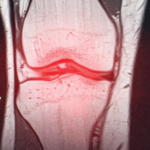The use of an interleukin (IL) 17A inhibitor resulted in gut microbial dysbiosis and features of subclinical intestinal inflammation in a subgroup of psoriatic arthritis (PsA) and spondyloarthritis (SpA) patients, according to a multidisciplinary, collaborative study across several institutions published in Arthritis & Rheumatology.1 Understanding the downstream effects of these perturbations is an important step…





